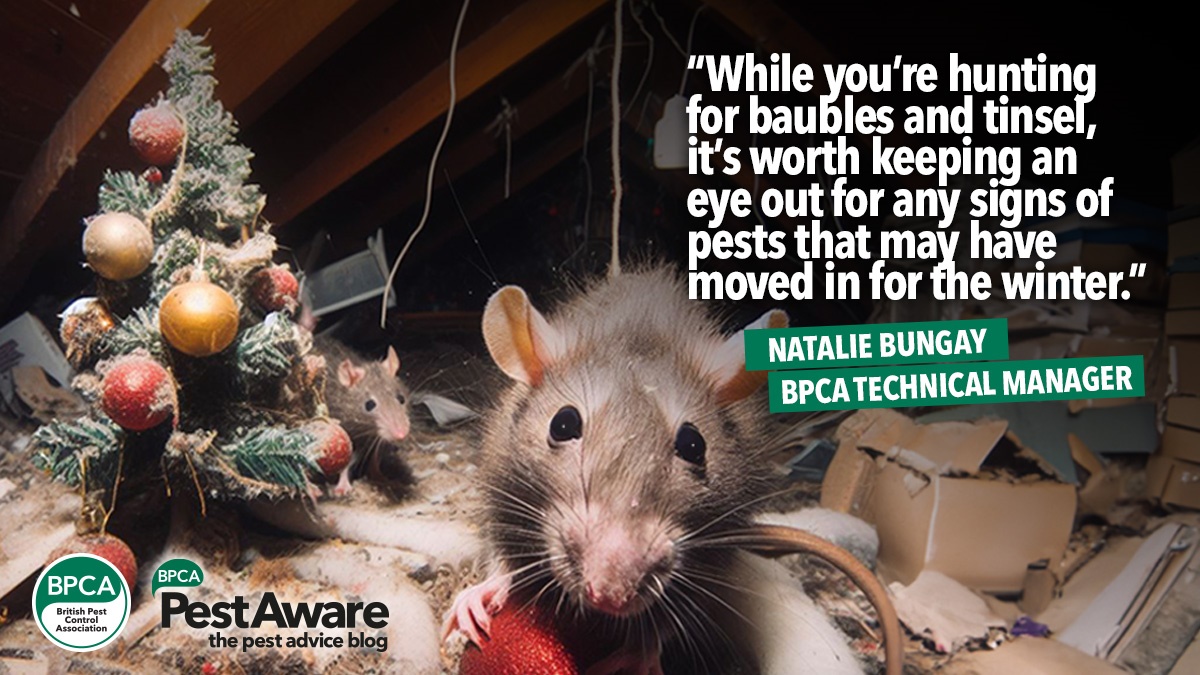PESTAWARE
Experts at a national trade body are urging householders to check attics for signs of pests when getting decorations down ready for Christmas.

British Pest Control Association (BPCA) says old nests, droppings and gnaw marks are all indications that an unexpected visitor has been in your loft – and could have left some nasty surprises behind.
If signs of pest activity are found, BPCA recommends seeking help from a pest professional to ensure unwanted visitors are out of the house as quickly as possible.
Natalie Bungay, Technical and Compliance Manager at BPCA said: “If you’re going up into the loft to get your Christmas decorations down, it’s an ideal opportunity to check for any signs that pests may have moved into your attic.
“While you’re hunting for baubles and tinsel, it’s worth keeping an eye out for any signs of pests that may have moved in for the winter.”
Look around your loft for the following signs:
- Droppings, urine odour, damage to Christmas decorations boxes etc are likely to indicate the presence of rats, mice or even squirrels
- Rats and mice need to gnaw, so if droppings or gnaw marks are visible, check for potential damage to wood, pipes and cables too
- Old bird nests indicate an access point somewhere in your loft so if possible, seal the hole, then get rid of the nest (If you find a bird or fresh nest in your loft, contact a professional for advice - all British wild birds, their nests and eggs are protected by the Wildlife and Countryside Act 1981)
- Overwintering insects are unlikely to cause you any issues, but you may find wasps or cluster flies in boxes or corners or even hidden under insulation
- There are several species of moth which infest homes, and some might find their way into your old clothes in the attic. Look out for damage to carpets or other fabrics, holes in clothes (particularly wool, cashmere and silk), moth eggs and moth larvae.
Natalie added: “Some pests also bring other pests with them, for example if you’ve had birds in your loft that have since gone, bird mites and carpet beetles could still be present. So, it is vital to ensure that someone with the correct knowledge and training identifies whether an infestation is active or not – and how to deal with it.
“Discovering a pest presence – or worse, an established infestation – can be distressing, so it’s important that you get help from a pest professional such as a BPCA member.”
BPCA member companies have the technical knowledge and experience to manage pests, while minimising risk to the environment and non-target species.
BPCA members:
- Carry the correct insurances
- Are trained and qualified technicians
- Are assessed to the British Standard in pest management EN 16636
- Follow BPCA’s Codes of Best Practice.
To find a BPCA member visit: bpca.org.uk/find.

Source: Online